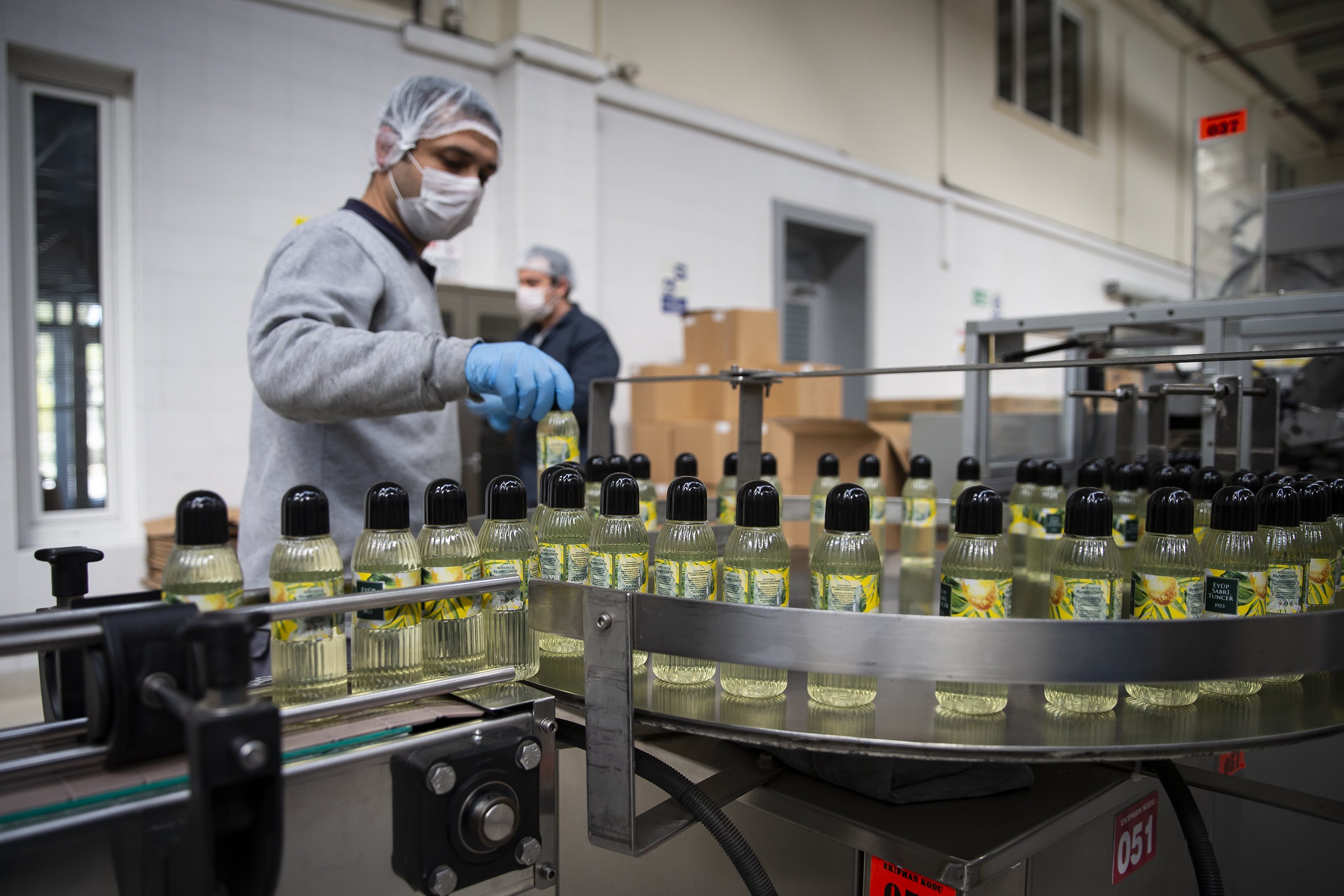While commercially available hand sanitizers are sold out worldwide, Turks have a traditional perfume that can be used as a disinfectant, offering both safety and style. It's called Kolonya perfume!
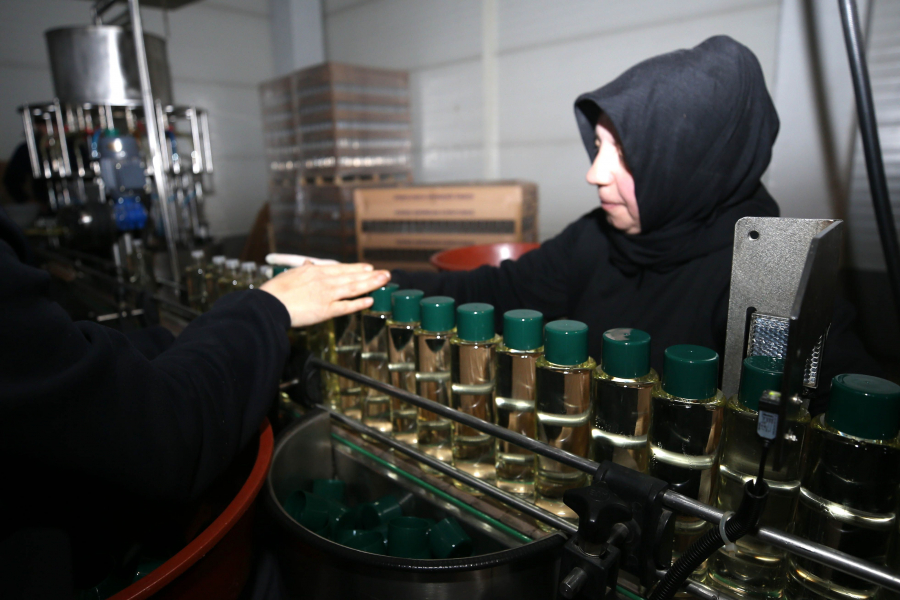
Traditional products during the COVID era
Kolonya simply means cologne - perfume. Kolonya perfume has been a symbol of Turkish hospitality and health since the Ottoman Empire. It is often referred to as the "national scent" of the Turkish people.
Traditionally, this sweet fragrance, made from fig blossoms, jasmine, roses, or citrus, is lightly applied to the hands of guests upon entering homes, hotels, hospitals, at the end of meals in restaurants, or during religious ceremonies. Unlike other natural fragrances, this high-alcohol perfume can kill over 80% of germs and can be used as an effective antibacterial hand sanitizer.
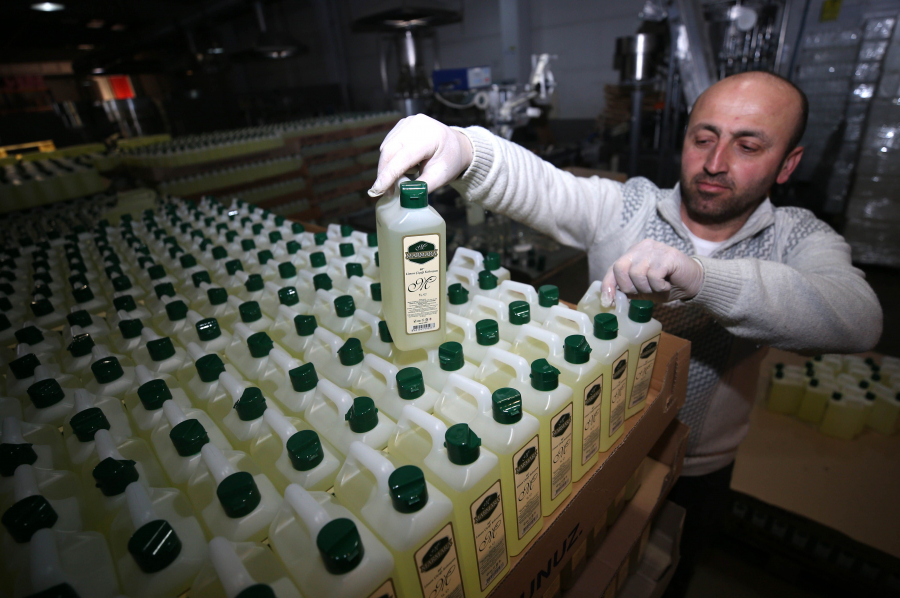
Dr. Hatira Topaklı, a family doctor in Istanbul, explains: "Kolonya has antibacterial properties because at least 60% of its composition (usually 80%) is alcohol. Therefore, it's not surprising that commercially available hand sanitizers aren't common in Turkey. Especially since people don't need to learn how to protect themselves from the coronavirus anymore, as they've been using kolonya daily for a long time!"
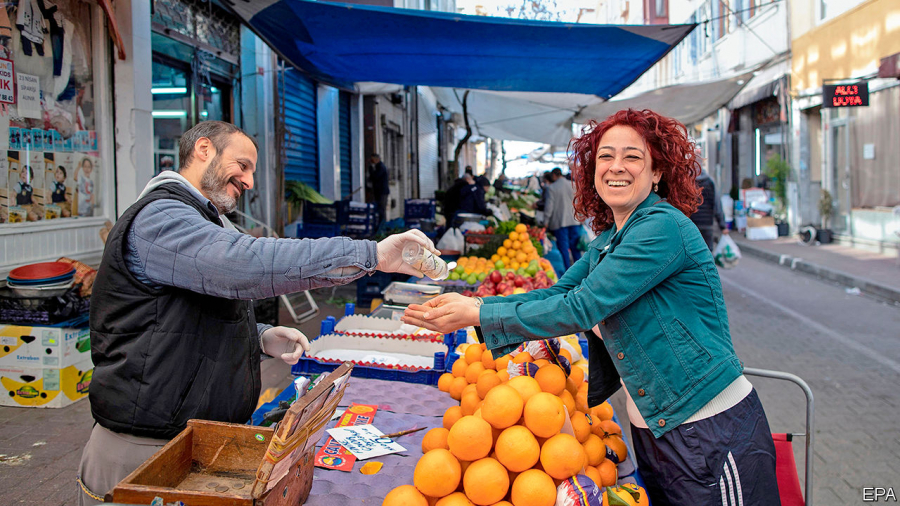
On March 13th, the Turkish government officially requested a reduction in ethanol supply in gasoline to boost the production of Kolonya perfume and other disinfectants in the fight against Covid-19. This decision inspired a wave of national media attention to the antiviral power of the traditional perfume and made people more aware than ever of how to protect themselves with Kolonya.
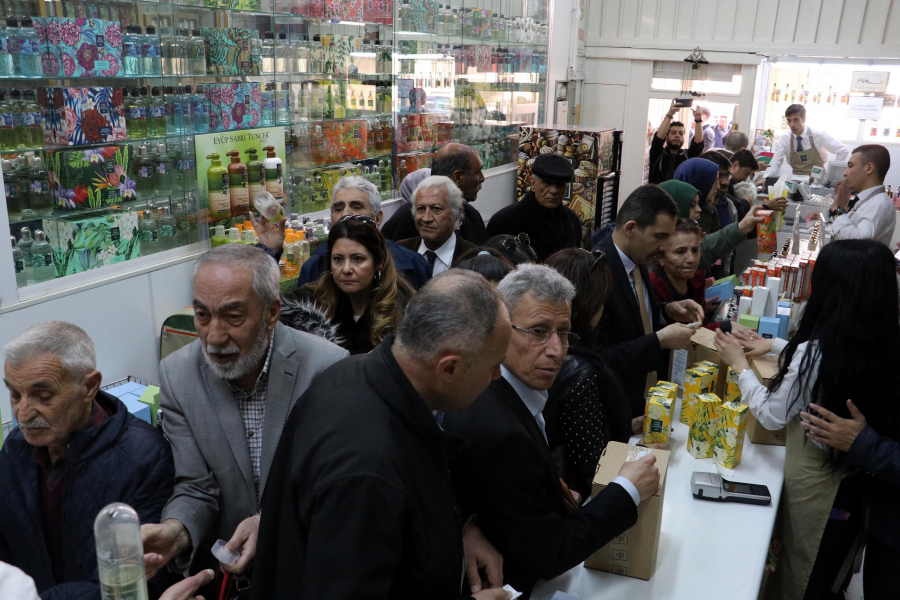
Typically, Kolonya is sold in pharmacies, supermarkets, or stores and is widely distributed throughout Türkiye. However, during the Covid-19 pandemic, some families proactively started making kolonya at home.
Kerim Müderrisoğlu, CEO of Rebul Holding, one of Turkey's oldest and most well-known commercial Kolonya brands, explains that producing Kolonya is quite simple and can be done at home using traditional methods. First, the base of Kolonya is ethanol, a readily available ingredient in Turkey for making traditional homemade cherry liqueur. Alternatively, pure ethanol can be made from fermented barley, grapes, molasses, or potatoes mixed with distilled water. Once ethanol is obtained, natural flavorings such as magnolia, lemon, or rosemary are added, and the mixture is sealed for 10 days to 3 weeks before bottling and use.
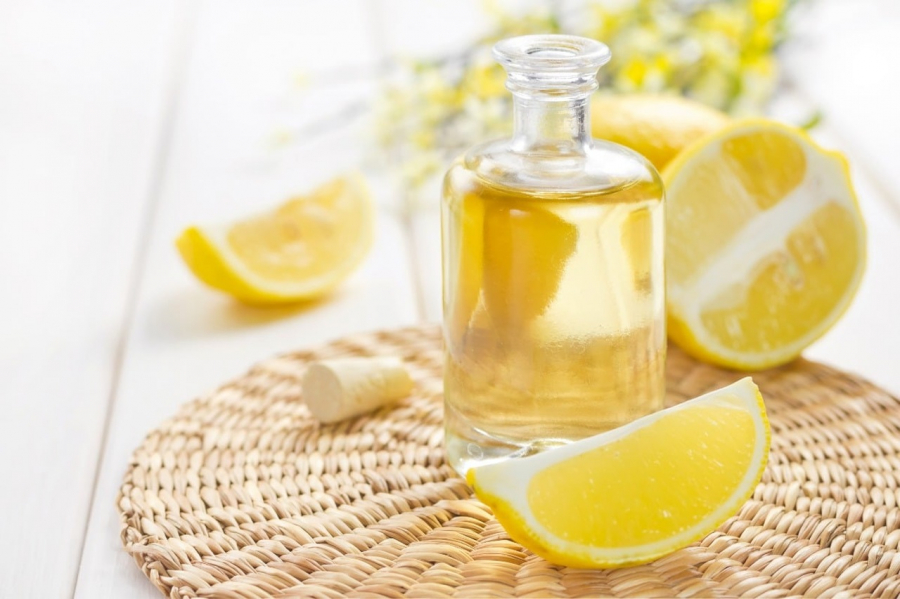
Kolonya in history and culture
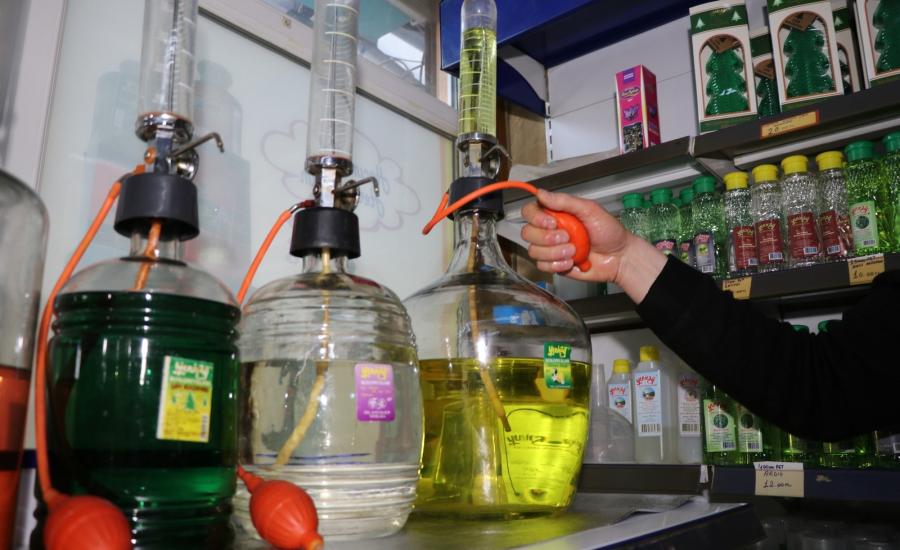
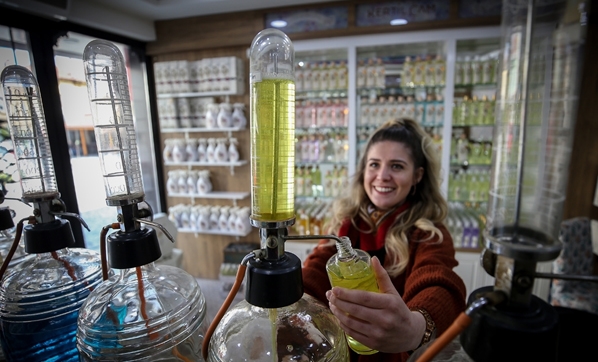
The history of Kolonya originates from rose water. In the 9th century, people on the Arabian Peninsula knew how to use rose water for fragrance, in cooking, beauty, religious ceremonies, and medicine. The Persians and Egyptians also used it for cleansing and welcoming honored guests. By the 19th century, eau de cologne (one of the types of perfume, often simply called cologne) traveled along the Silk Roads from Cologne, Germany, to the Ottoman Empire. When Ottoman Sultan Abdülhamit II first encountered it, he adapted the formula by blending traditional rose water with the novelty of an alcohol-based perfume from abroad to create Kolonya.
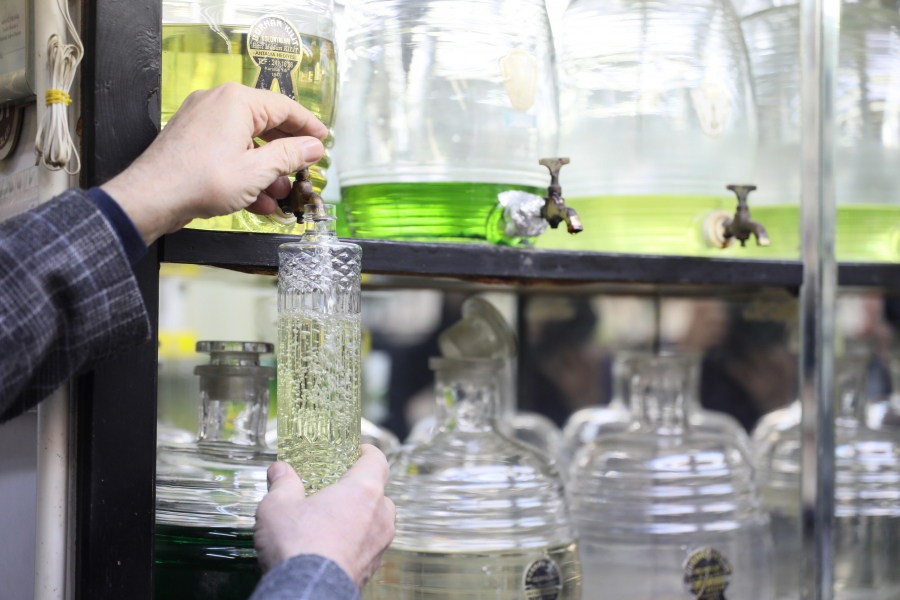
There are many famous types of Kolonya in Türkiye, such as: Kolonya made from lemons harvested in the coastal town of Çeşme, Kolonya made from lavender, Kolonya made from lemongrass, honey, amber, etc. And successively, cities and towns throughout Turkey have begun to create Kolonya using their own unique regional ingredients: Isparta produces Kolonya with a sweet rose scent, communities near the Black Sea have Kolonya with a hint of tobacco, and other places have Kolonya with fig, pistachio, jasmine, and magnolia flowers.
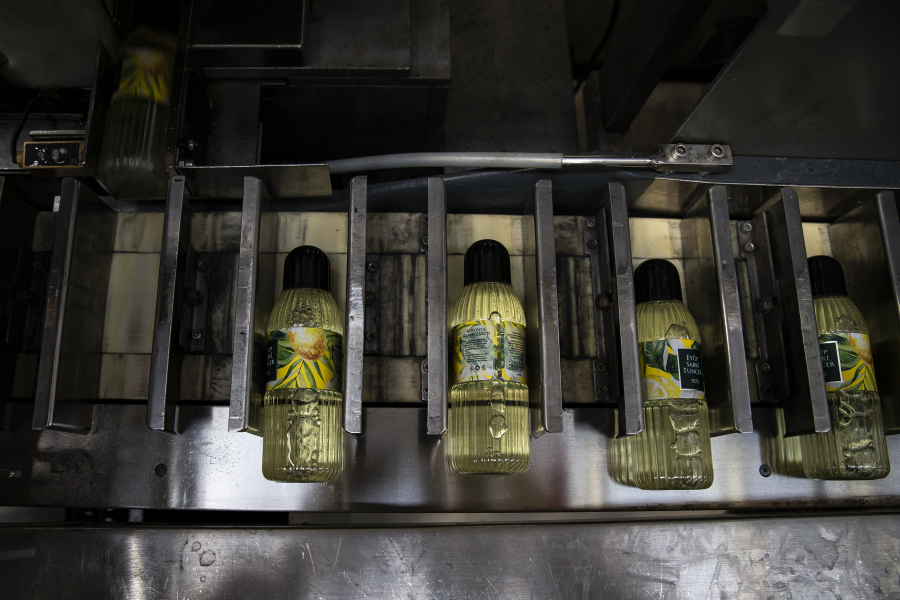
There isn't much difference between Kolonya and other perfumes, as they all have similar ratios of ethanol and essential oils, combined with scents like orange and lemon. What makes Kolonya unique is how it's used. Kolonya is found in every household across all social classes in Türkiye to the point that it's said to be as essential as food in the refrigerator. It's also indispensable in lessons on etiquette and manners, offering the practicality of antibacterial hand sanitizer combined with the distinctive fashion sense of a classic perfume.
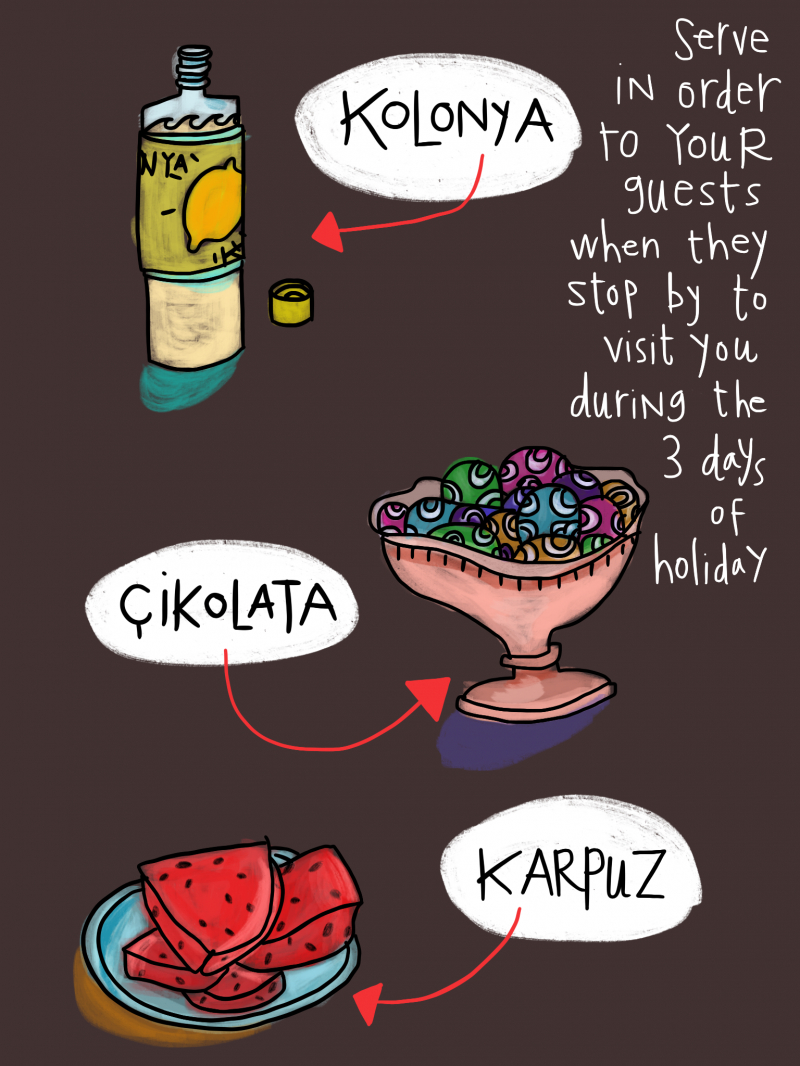
Every Turkish child is taught to welcome guests with three things: candy, tobacco, and Kolonya. Kolonya is not only a welcome gift, but also a symbol of health. Besides its antibacterial properties, Kolonya has many other health benefits. Adding a few drops to a sugar cube aids digestion. Rubbing Kolonya on the temples can relieve headaches. Therefore, whenever visiting a sick person, Turks always give them Kolonya as a gift.
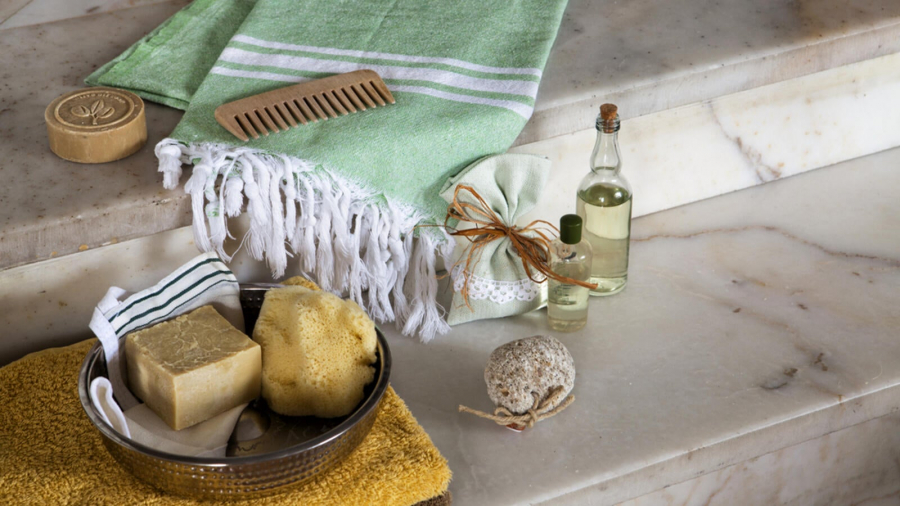
Typically, Turks keep them in bedrooms, living rooms, and especially bathrooms. Kolonya is also a common feature at traditional religious gatherings and holidays. Tourists visiting Turkey may have encountered a bottle of Kolonya in a hotel room, a dressing room at a high-end restaurant, or even at the end of a long bus journey.
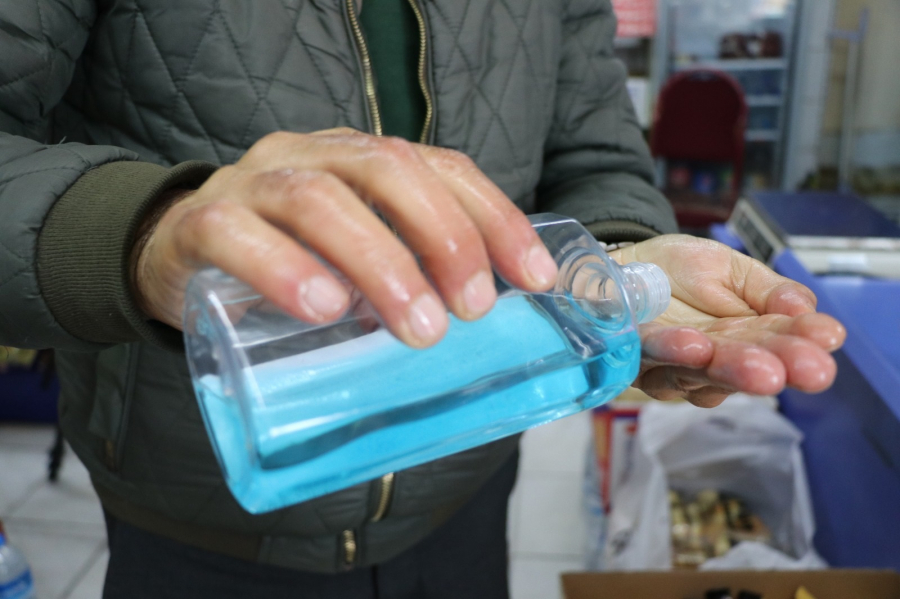
As a symbol of hospitality and health, Kolonya is more than just a disinfectant. It has also been a source of comfort for many Turks during uncertain times in their lives. And now, as both the world and Turkey are navigating the difficult period of the Covid-19 pandemic, Turkish people are looking to Kolonya not only for its versatility and essentiality but also for its close connection to the culture and history of the region.
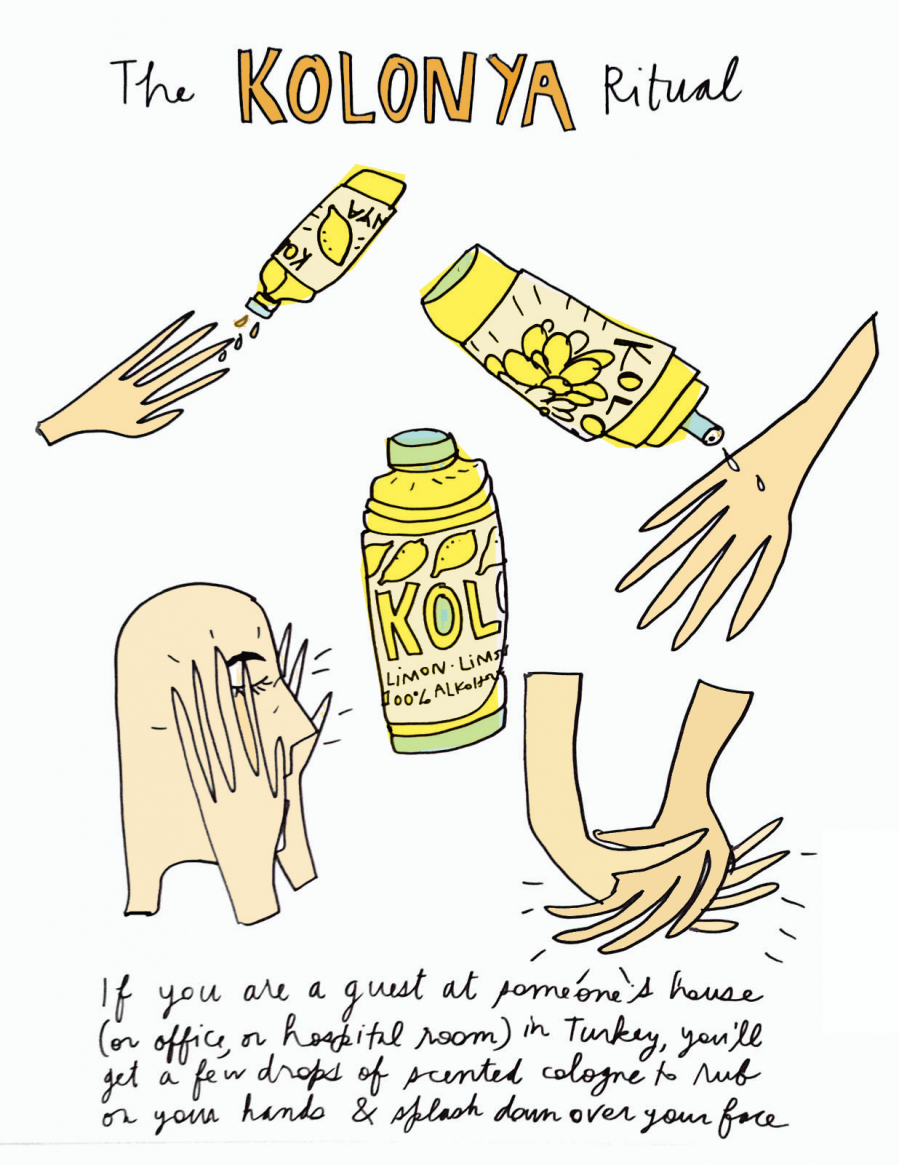

 VI
VI EN
EN



